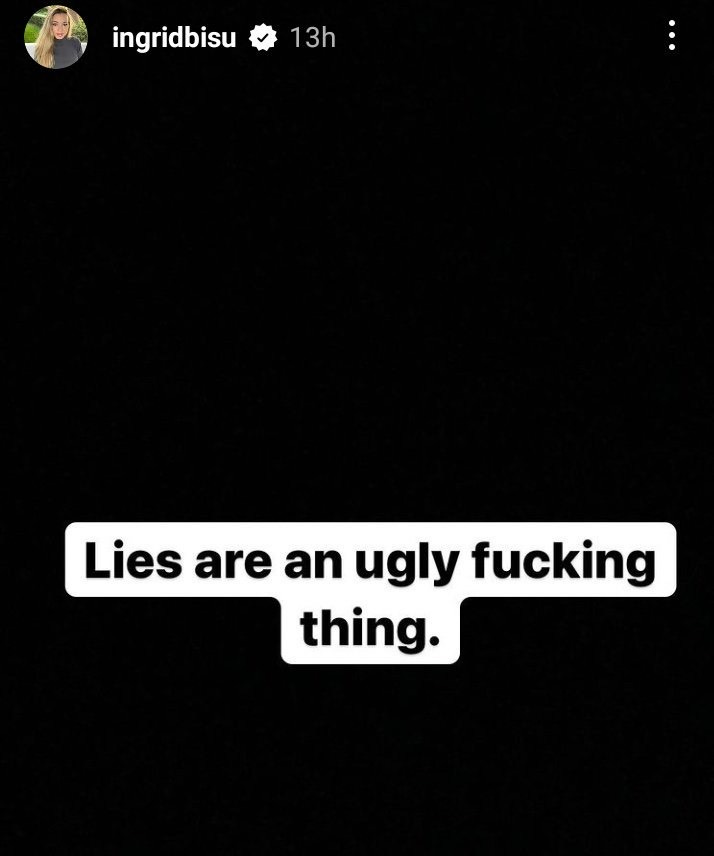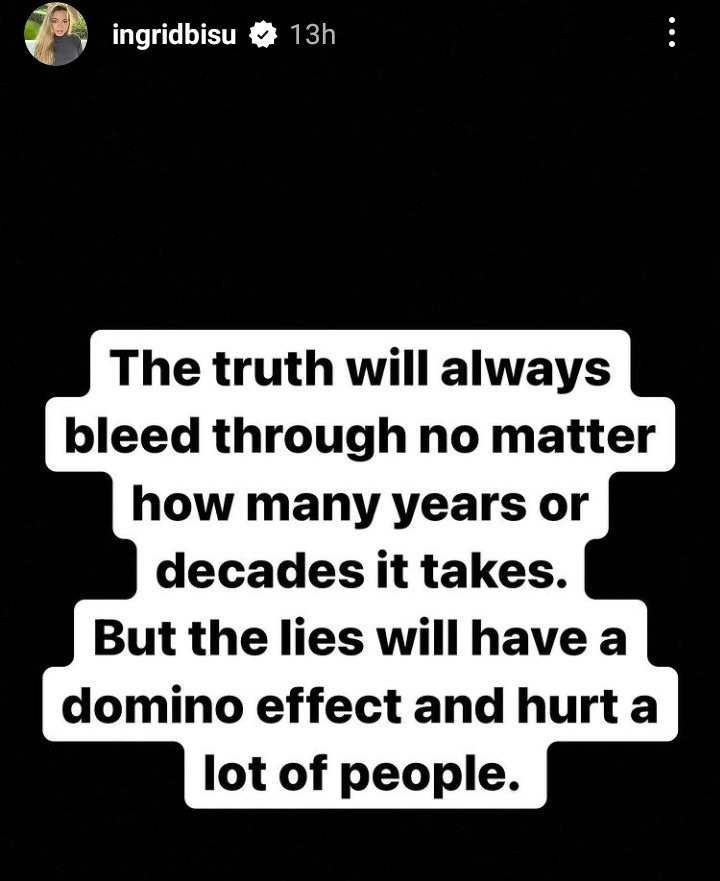Why You Can Give James Wan the Benefit of the Doubt
Throughout the production of director James Wan's latest movie "Aquaman and the Lost Kingdom," both Johnny Depp and Amber Heard supporters have publicly denounced him. There is more to the story.
Before I begin, I want to make something clear: this article is about neither Amber Heard nor Johnny Depp. Other than indirect references or important context, this will be the only time I mention either actor. I also encourage you as a reader to read with an open mind. Just pretend they are not central to this story. If you need help doing so, let me wipe your mind for a second. I’m wiping your mind, wiping your mind, wiping—
Okay? Now let’s get to the point.
Not every movie-goer may know the name James Wan, but every movie-goer knows a film directed by Wan. “Saw,” “Insidious,” “The Conjuring,” “Furious 7” and “Aquaman” are his most popular films both critically and commercially. It is the sequel to the latter film that has made a big splash, albeit for the wrong reasons.
Between the Lines of Doubt
“Variety” reported on notes from Amber Heard’s therapist which allege mistreatment on set of the superhero film. Heard’s therapist, Dr. Dawn Hughes, evaluated Heard during her defamation trial against ex-husband and actor Johnny Depp.
Dr. Hughes’ notes allege Heard feeling unsupported by Wan and blamed for “Aquaman’s” marketing woes.
“He raised his voice [at] me — ‘I can’t even post about “Aquaman”’ — made it like it was my fault — I said ‘I’m sorry,’” the notes read.
Between the first “Aquaman” film and the upcoming sequel “Aquaman and the Lost Kingdom,” Heard, who plays superheroine Mera in both films, became embroiled in defamation lawsuits with ex-husband and actor Johnny Depp. The attention Depp and Heard’s legal battle received has caused a major PR headache for studio distributor Warner Brothers, DC and Wan.
“Variety’s” report was immediately met with opprobrium directed at Wan from supporters of Heard on X (formerly Twitter). “jason momoa & james wan [sic] going to hell genuinely,” wrote one user. Another wrote, “James Wan being a horrible person is such a sad thing for me to find out today. I love his horror movies and I hate that he treated Amber this way.”
While Wan declined to comment for the “Variety” article, a DC spokesperson contradicted Heard’s allegation concerning Wan. “James is known for treating members of his cast and crew with the utmost respect and for fostering a positive, collaborative environment on set — the ‘Aquaman’ films were no exception.”
The question is, what happened? Did James Wan really lose his temper at Heard?
That is the thing — we don’t know for certain.
The little information we have includes out-of-context therapy notes that are not verbatim and a DC spokesperson. Objectively, there is not enough information or context to form a substantial opinion on the alleged incident. If we don’t have the facts, how do we develop an opinion? Why should we develop an opinion?
Perhaps, Wan did raise his voice at Heard and blamed her for the harassment he was facing from Depp’s supporters. Other scenarios are possible: the situation could have been a misunderstanding, Heard may have misinterpreted Wan, Wan may have unintentionally raised his voice before apologizing to Heard, etc. There is also the possibility that Heard may have lied about Wan’s behavior. Many scenarios could have happened, but we don’t know which scenario actually occurred. Because of the little information we have, it wouldn’t be wise to speculate on Heard’s conversations with her therapist — conversations she did not want public.
The therapy notes were supposed to be confidential and private information. Presumably, Heard figured whatever she told Dr. Hughes would remain confidential. These notes only became public when supporters of Depp bought access to the court documents (while the court that presided over Depp and Heard’s trial unsealed the documents, supporters had to pay for access). Heard’s lawyers unsuccessfully fought to keep Dr. Hughes’ notes sealed.
We, the public, should not have access to such private information. The beauty of therapy is confidentiality: you can be raw, angry, emotional, etc. You can express the negative feelings which are unhealthy to hold onto, and you can let them go. In therapy, you can acknowledge the thoughts you don’t really think but can’t get rid of completely. It is an intimate and vulnerable process not meant for the public eye.
If any of my past therapists’ notes became public, the people I hold close may get the Wan treatment — all because I needed to vent my frustrations one fateful day. As “Cosmopolitan” writer Olivia Truffaut-Wong wrote on X, “Therapy is supposed to be a safe space where you can freely speak about how *you* experience things. To then have it be published and fact checked is just a horrible breach of privacy.”
To use Heard’s session to condemn Wan sets a dangerous precedent; it normalizes the breach of confidentiality. Because we emphasize confidential therapy notes, it validates and legitimizes the notes’ publicization.
Coverage of the notes concerning Wan neglects important context: intimate partner violence is a topic that hits close to home for him.
Ingrid’s Story
Wan is married to actress and producer Ingrid Bisu. She has appeared in films produced by Wan such as “The Nun” and “The Conjuring: The Devil Made Me Do It.” Bisu is best known for working as a producer, story writer, and actress on Wan’s recent horror film “Malignant.” She is also a survivor of intimate partner violence.
Bisu frequently posts about domestic violence awareness on her Instagram. The protagonist in “Malignant,” Madison (played by Annabelle Wallis), is a survivor whose sadistic parasitic twin, Gabriel, is unleashed after an incident of physical abuse. Madison is partially based on Bisu’s experience with the matter in real life.
“None of this is by accident,” Wan told “Yahoo” about Bisu taking inspiration from her experiences as a survivor. When screenwriter Akela Cooper was hired to pen the script, Wan stated that having a female writer “was very important to Ingrid [since] that was her POV, and that was important for us to maintain in the scripting.”
When Johnny Depp supporters began to harass Wan over Heard’s appearance in “Aquaman and the Lost Kingdom,” the harassment’s toll was heavy on Bisu.
Bisu spoke to me about the harassment she and James experienced during the film’s production, which I later wrote about last year during the trial.
“We’ve gotten so much hate, including hateful messages on our doggie’s [sic] Instagram page,” Bisu said. “It’s insane. Some people have no limits as to how low they will go.”
Depp v. Heard: How 'Aquaman' Will Factor into the Trial
Author’s note: This article is part of a series covering the Johnny Depp and Amber Heard libel trial in Fairfax, Virginia. Domestic violence is a recurring theme throughout the series that some readers may find triggering. The National Domestic Violence Hotline
The harassment reached a point where Wan turned off his Instagram comments on any Aquaman-adjacent post. (As of publication, Wan’s comments are limited to people he follows — this was turned on following the “Variety” report.)
While the harassment can be mainly attributed to Depp’s online fanbase, the general consensus on Heard’s appearance in “Aquaman and the Lost Kingdom” is polarizing, to say the least. A Change.org petition titled, “Remove Amber Heard From Aquaman 2” has 4.6 million signatures as of publication. When the movie’s trailer was uploaded on YouTube, the top comments celebrated Heard’s lack of screen time in the trailer. Even though X has grown sympathetic to Heard since the trial, comments on “Variety’s” Instagram and Facebook posts promoting its article about the therapy notes were quickly met with negative comments about Heard.
Despite the harassment Wan and Bisu have faced online from the Depp fanbase, not all of Heard’s supporters are sympathetic. “Jezebel” writer Kylie Cheung, who frequently writes about domestic violence for the feminist news website, criticized Wan after “Variety’s” report in an article about Dr. Hughes’ notes.
Cheung chastised Wan for being “openly hostile to Heard as he blamed her for barriers to promoting the movie.” To Cheung, Heard was “thrown under the bus by a director… who seemed to capitulate to Depp fans’ demands.”
Cheung’s article does not mention the harassment Wan has received from Depp fans or Bisu’s status as a domestic violence survivor.
While Wan has not commented on Depp and Heard’s infamous legal battle, Bisu made a subtle statement during the trial in Virginia.
When Heard testified on the stand that her role in “Aquaman and the Lost Kingdom” was reduced after coming forward with her allegations against Depp, Bisu took to Instagram to defend Wan.
“Lies are an ugly fucking thing,” Bisu wrote in a story. She followed up with, “The truth will always bleed through no matter how many years or decades it takes. But the lies will have a domino effect and hurt a lot of people.”
Despite not speaking out until after Wan was mentioned, Depp’s fans used her stories to suggest that Bisu — and indirectly, Wan — thought Heard was an abuser (Bisu has never publicly commented on Heard’s domestic violence allegations specifically).


Given the harassment Wan has faced from both Johnny Depp and Amber Heard supporters, his wife’s personal experience with intimate partner violence, and the lack of information surrounding Wan’s alleged behavior described in the therapy notes, it is safe to give him the benefit of the doubt.
In a society where everyone on social media must have an opinion on the top headlines, it is radical to think, “There is not enough information available to comment on this subject.” It is completely and totally okay not to have an opinion without the information necessary to think critically. This should not be a controversial take.
The National Domestic Violence Hotline can be reached at 1-800-799-7233.



!["You can never win by mistreating and using people. This is why toxic and narcissistic people will always loose [sic]. Don't believe the hype that they lead these amazing lives. It's all an illusion. Deep down inside the cold heart of a narcissist lies failure, unhappiness, depression, sadness, insecurity, self loathing and never being content with anything or anyone. "You can never win by mistreating and using people. This is why toxic and narcissistic people will always loose [sic]. Don't believe the hype that they lead these amazing lives. It's all an illusion. Deep down inside the cold heart of a narcissist lies failure, unhappiness, depression, sadness, insecurity, self loathing and never being content with anything or anyone.](https://substackcdn.com/image/fetch/$s_!nrGd!,w_1456,c_limit,f_auto,q_auto:good,fl_progressive:steep/https%3A%2F%2Fsubstack-post-media.s3.amazonaws.com%2Fpublic%2Fimages%2Fb3783211-6087-405e-9653-04d603e13d1a_970x1782.jpeg)
